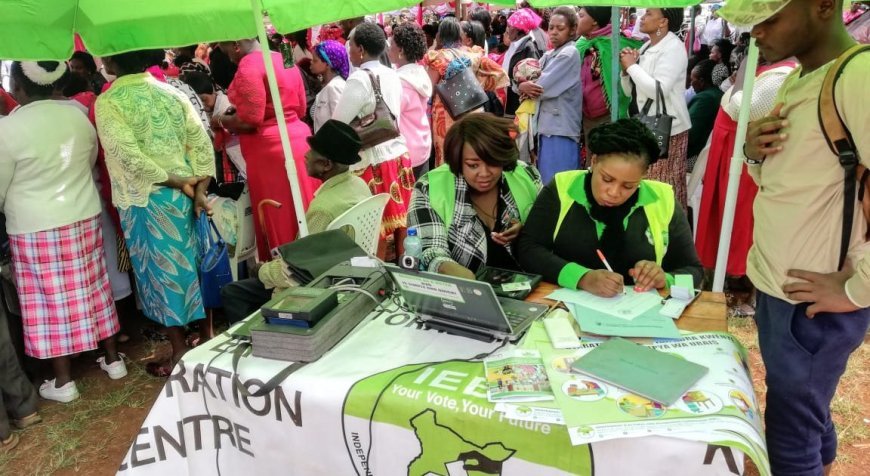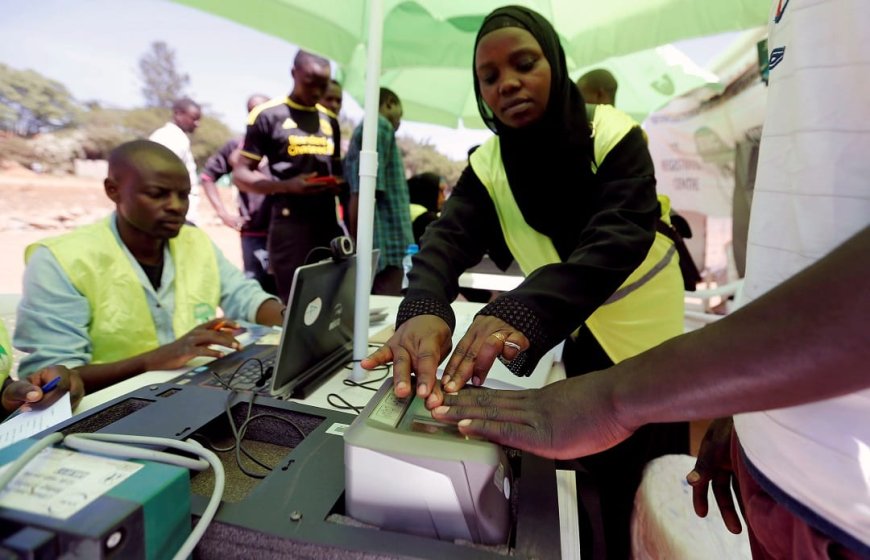IEBC To Scan Iris, Fingerprint, ID In Voter Registration Changes
The exercise commenced in all 290 constituencies, followed later by ward-level registration to expand access.

The Independent Electoral and Boundaries Commission (IEBC) began rolling out nationwide voter registration on Monday, September 29, in preparation for the November 27 by-elections and the August 2027 General Election.
Through the Continuous Voter Registration (CVR) drive, the commission is targeting 6.3 million new voters who have recently acquired national ID cards. The exercise commenced in all 290 constituencies, followed later by ward-level registration to expand access.
IEBC commissioner Alutalala Mukhwana, speaking on Citizen TV, noted that several reforms have been introduced to make the process more efficient and transparent.
These include automated scanning of ID details, iris data collection in addition to fingerprints and passport photos, and measures to eliminate duplicate registrations and errors in personal details.

IEBC officials during a past voter registration exercise. /REUTERS
How Registration Will Work
At the registration centre, applicants will hand over their ID cards for verification. The card will be scanned on a tablet to confirm whether the person is already a registered voter.
If not, their ID will be scanned again to capture personal details such as ID number, serial number, gender, and date of birth automatically, avoiding manual entry mistakes.
Next, the applicant’s literacy level and any special needs will be recorded. They will then select their preferred polling station and ward. The final step involves biometric capture—fingerprints, a passport photo, and, for the first time, iris data.
The process is designed to take no more than 10 minutes, with younger and more tech-savvy applicants expected to finish in about five.
Access to Registration Centres
To hit the 6.3 million target, IEBC has eased requirements around where voters can register. Kenyans will now be able to sign up at any registration centre, regardless of where they intend to vote.
For example, someone working in Nairobi but voting upcountry can register in the city and still choose their village polling station.
Each constituency will be equipped with four registration kits—two for regular registration to cut queues, one for voters registering outside their home areas, and a special fourth kit aimed at attracting younger voters. Details of this youth-focused kit will be unveiled soon by IEBC chair Erastus Ethekon.
"We have another innovation that is coming up, but I am not allowed to talk about it because it is yet to come, but it is so Gen-Z friendly, and God-willing, the chairman will be pronouncing himself on this," he stated.







